Supernova star Stanley Tucci: ‘Dementia is moving and disturbing and tragic’
Tucci stars opposite Colin Firth in the new film about a couple struggling to deal with a diagnosis early on-set dementia. He and director Harry Macqueen speak to Laura Harding about their experiences
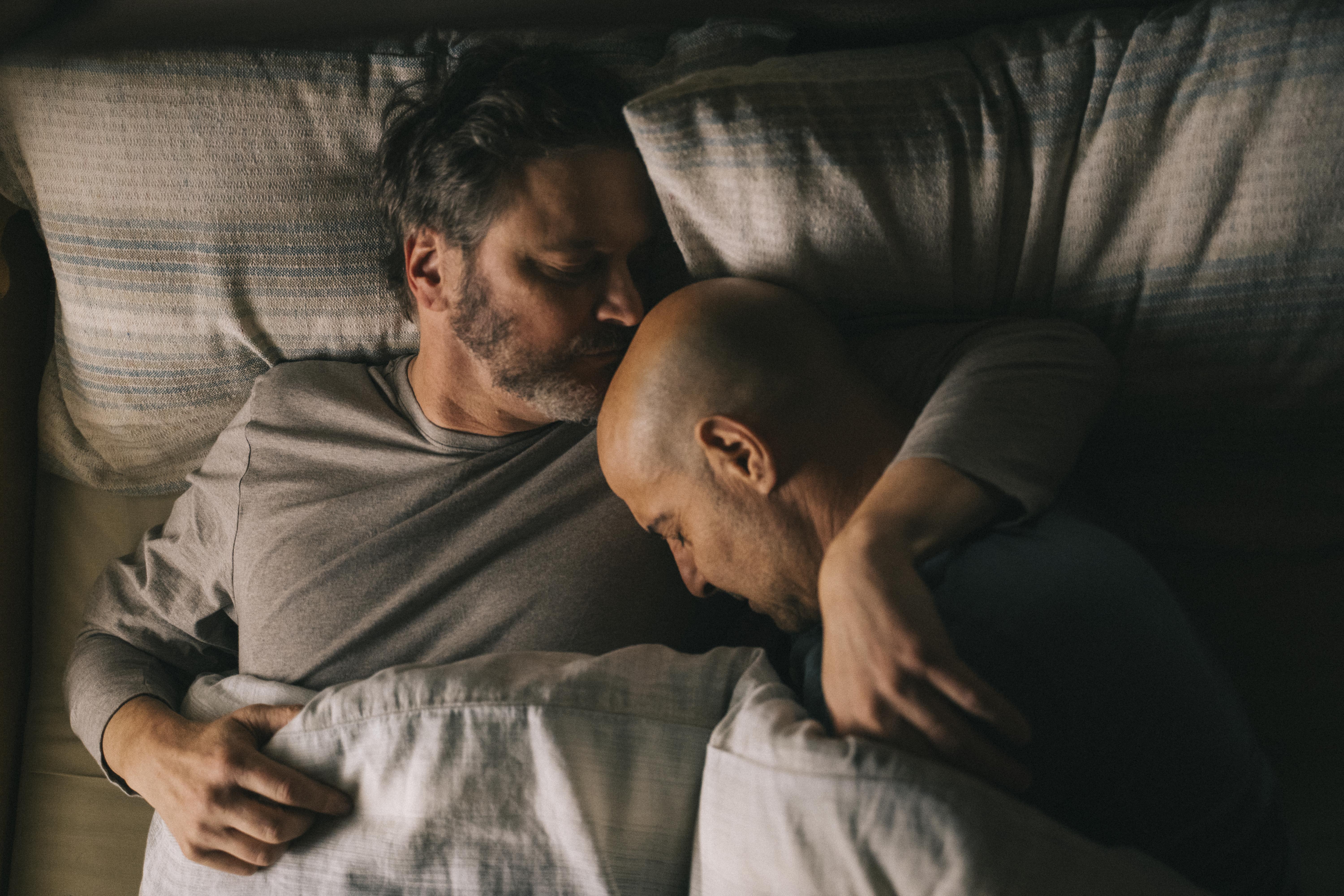
Your support helps us to tell the story
From reproductive rights to climate change to Big Tech, The Independent is on the ground when the story is developing. Whether it's investigating the financials of Elon Musk's pro-Trump PAC or producing our latest documentary, 'The A Word', which shines a light on the American women fighting for reproductive rights, we know how important it is to parse out the facts from the messaging.
At such a critical moment in US history, we need reporters on the ground. Your donation allows us to keep sending journalists to speak to both sides of the story.
The Independent is trusted by Americans across the entire political spectrum. And unlike many other quality news outlets, we choose not to lock Americans out of our reporting and analysis with paywalls. We believe quality journalism should be available to everyone, paid for by those who can afford it.
Your support makes all the difference.Stanley Tucci and Colin Firth had already been cast in their latest film when they decided they wanted to switch roles.
The duo, who are both 60, play a couple visiting friends, family and places from their past in an old camper van, as they struggle with a diagnosis of early-onset dementia in the tender love story Supernova.
Firth was due to play Tusker, who is trying to hide the severity of his condition, while Tucci was expected to play his partner Sam who has put his life on hold to become a full-time carer.
“Colin came to me one day,” Tucci recalls from his home office-cum-studio where he writes and ‘fiddles around with paint’, “and he goes, ‘I think we should switch roles’. This is when Harry [Macqueen, the director] was casting the other parts and beginning prep and all that.
“And I was like, ‘Yeah, I know. I think that too’. So we went to Harry, and we said, ‘We’d like to do this’ and he looks at us like ‘Oh Jesus, how did I get these guys? They are going to make my life difficult’.”
Swapping parts with a fellow actor is not exactly commonplace in film, but something just clicked when they did.
“Harry said, ‘Let’s read’. So we read some scenes and it was obvious once we switched. We read it both ways and then, once we switched, it just worked better. I don’t know why.
“You could just tell, you read it one way, with me playing Colin’s role, which was the original idea, and him playing mine, and then we read the same scene the other way and just worked better.
“Even though he had written both of them to be British I was going to play an American, whichever role I played, because it would be doing a British accent for no reason, and then when we flipped it, there was something about the way Harry wrote Tusker that did seem to work better as an American.”

Watch Apple TV+ free for 7 days
New subscribers only. £8.99/mo. after free trial. Plan auto-renews until cancelled

Watch Apple TV+ free for 7 days
New subscribers only. £8.99/mo. after free trial. Plan auto-renews until cancelled
But swapping the roles means Tucci had to endure some of the more emotionally gruelling aspects of the film, as Tusker becomes increasingly aware that he is losing control.
“The condition alone is moving and disturbing and saddening and tragic and Harry’s representation of it was all of those things, but done with such subtlety and poeticism,” Tucci says.
It also made it impossible not to consider his own mortality and how to navigate his fear of such a cruel disease.
“I think about it all the time.” he admits. “I never really did before. But now I do.
“It seems that it is genetic, so I think, luckily, I don’t seem to have that. But I know people who do have that in their families and it’s scary.
“And we have a friend of ours, whose mother isn’t much older than than I am. And she has it. It’s really hard.”
The film was inspired by director Macqueen’s own experiences with people facing dementia at a relatively young age.
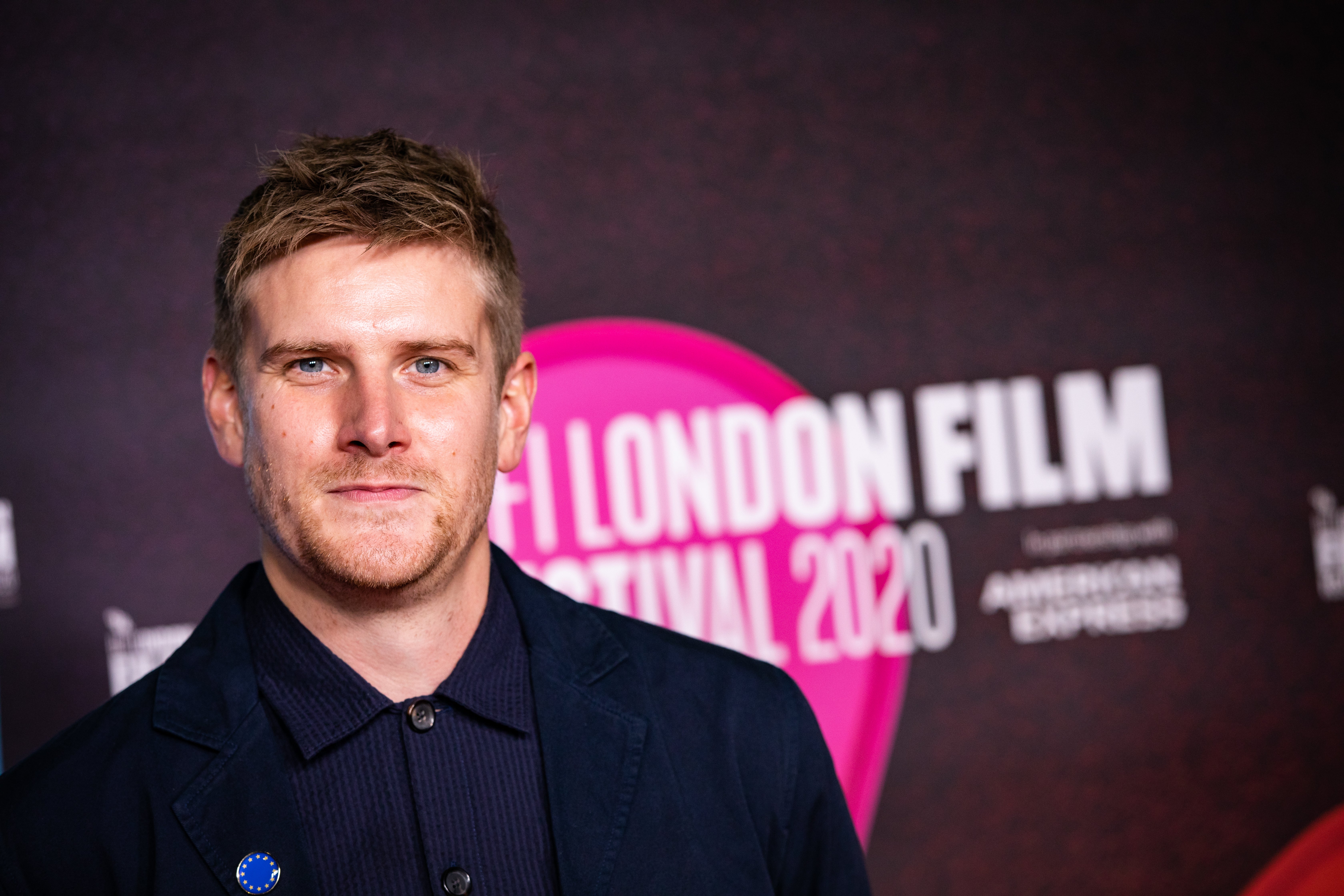
“A few things happened in quick succession in about 2015,” the filmmaker remembers.
“I was working with with a lady who changed a lot over the year that I worked with her, and she ultimately got fired.
“About six months later, I found out she had been diagnosed with a form of young-onset dementia.
“So I was working with her, and neither of us knew that’s why she was changing – it was the dementia that was changing her ultimately. And that was really thought-provoking and powerful.
“Round about the same time, a friend of mine put her dad in a care home, and he just turned 60. So those things were orbiting around me, and it made me want to learn more about dementia, because I didn’t know enough about it.
“So, I volunteered for some charities in London and over the course of two or three years, spent a lot of time with people who were living with dementia, specifically young-onset dementia, and the film emerged from there.”
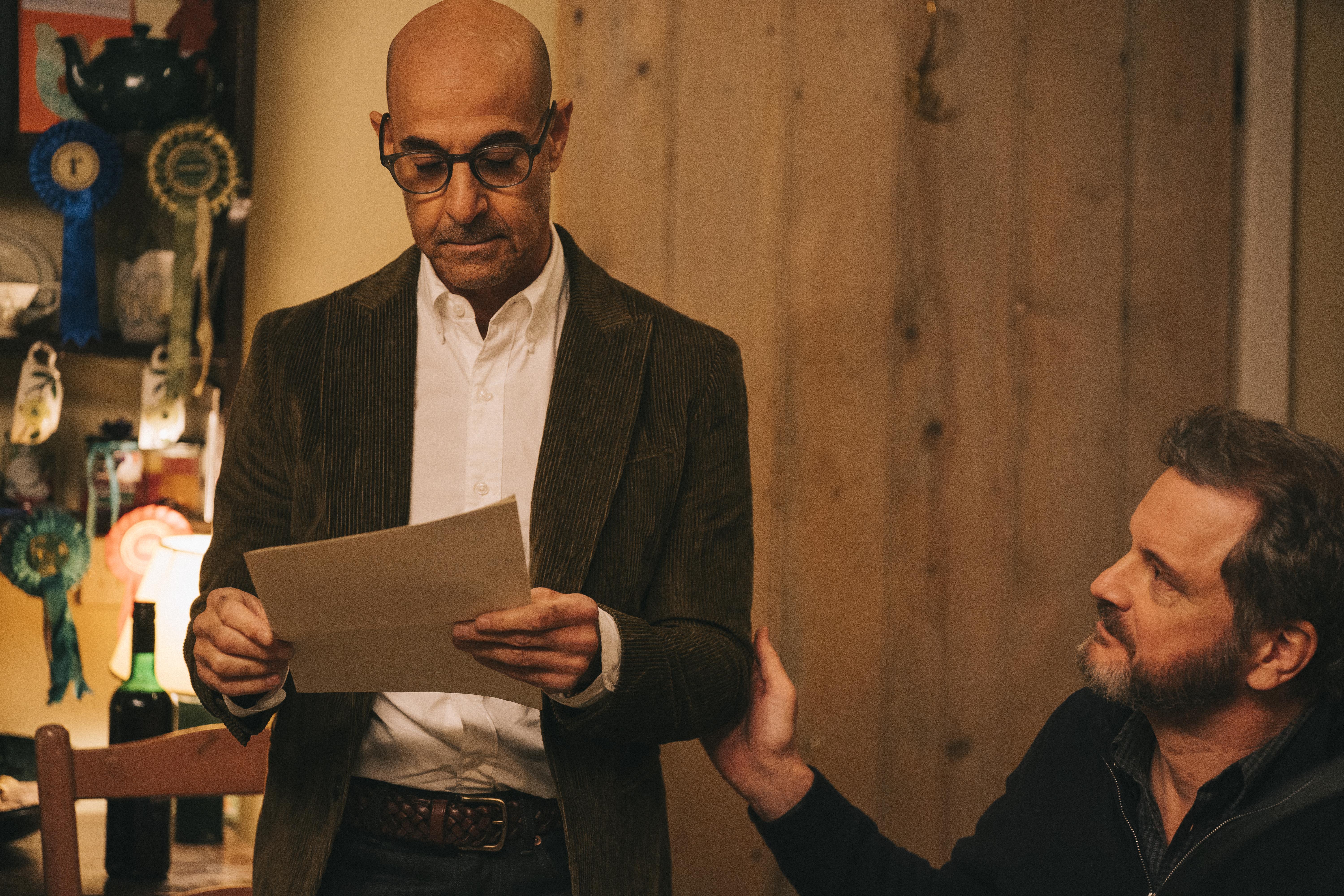
Macqueen, who made his directorial debut with the love story Hinterland in 2015, in which he also starred, took the decision to make the film about a same-sex couple, to show the disease does not discriminate, but also to challenge the notion that films about gay romances must have the fact a couple is gay at their centre.
“It occurred to me very early on that this would be a perfect project in which to challenge that narrative and make something original, because what I was talking about in the film are ultimately, very universal things.
“It felt immediately that it wouldn’t impact anything for the characters to be a same-sex couple. It would impact them hugely, obviously, in their lived experience as characters, but I think there’s something revolutionary about the film in its own little way, in the way that it deals with same sex experience.
“I don’t think cinema talks about mature romantic love enough anyway, but it certainly doesn’t do it in on same sex terms. And I think that seemed like a really interesting and original thing to look at.
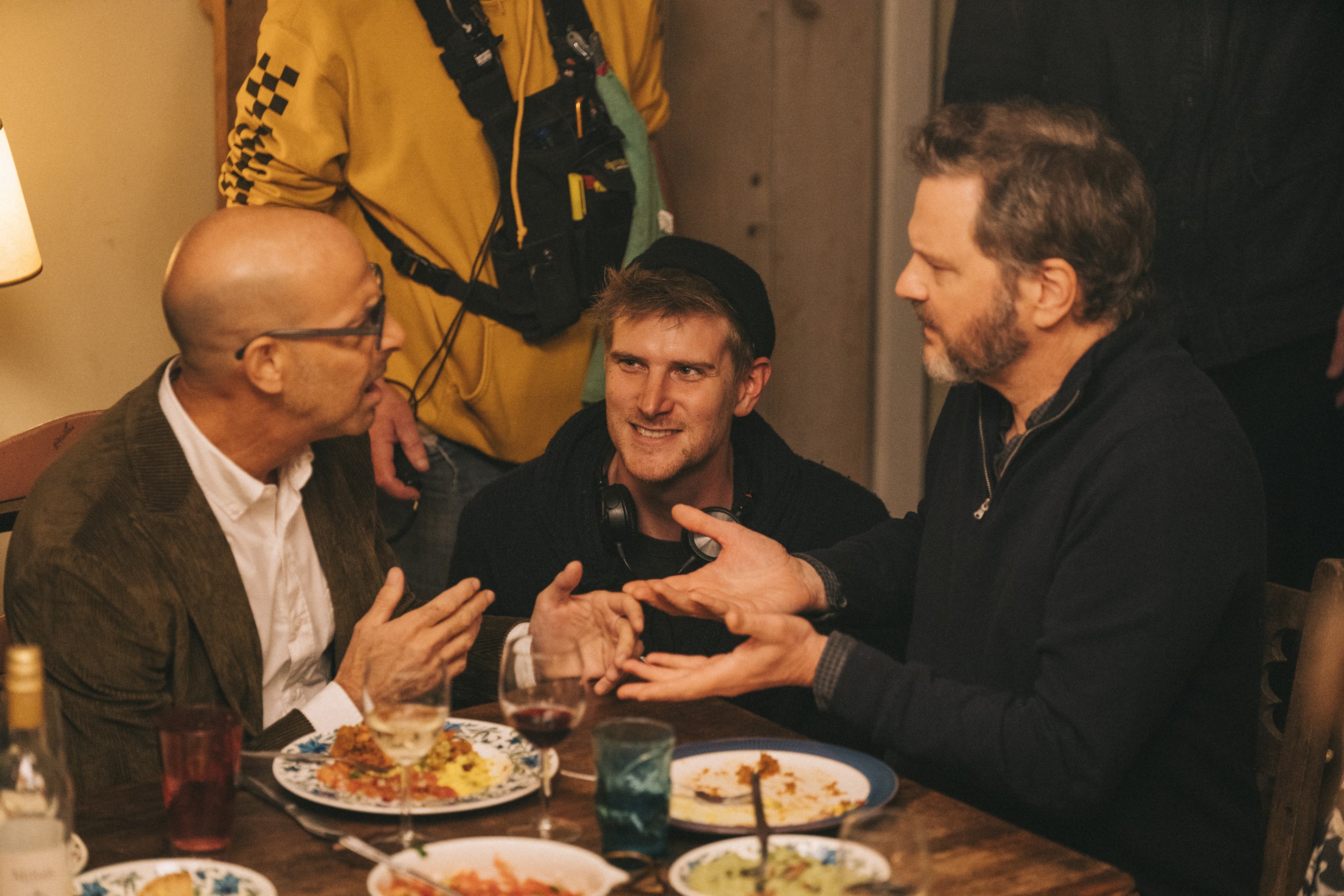
“The LGBTQ+ sub genre – if you can call it that – of cinema, tends to understandably be about people finding themselves, transitioning early on in life, going through that challenging and difficult process of coming out, or finding your true self and all that stuff, which is great, obviously, and very worthy.
“But I was very interested in making a film where the sexuality of the characters didn’t impact the narrative or the plot in any way. It’s accepted and embraced as a natural, beautiful thing. And I think that is inspirational for some people. And that means a lot.”
Tucci is in agreement.
“I think Harry did a very good thing in embracing they are just two people who love each other and that’s it. And the sooner we get there, in cinema, and in real life, the better off we’ll all be.
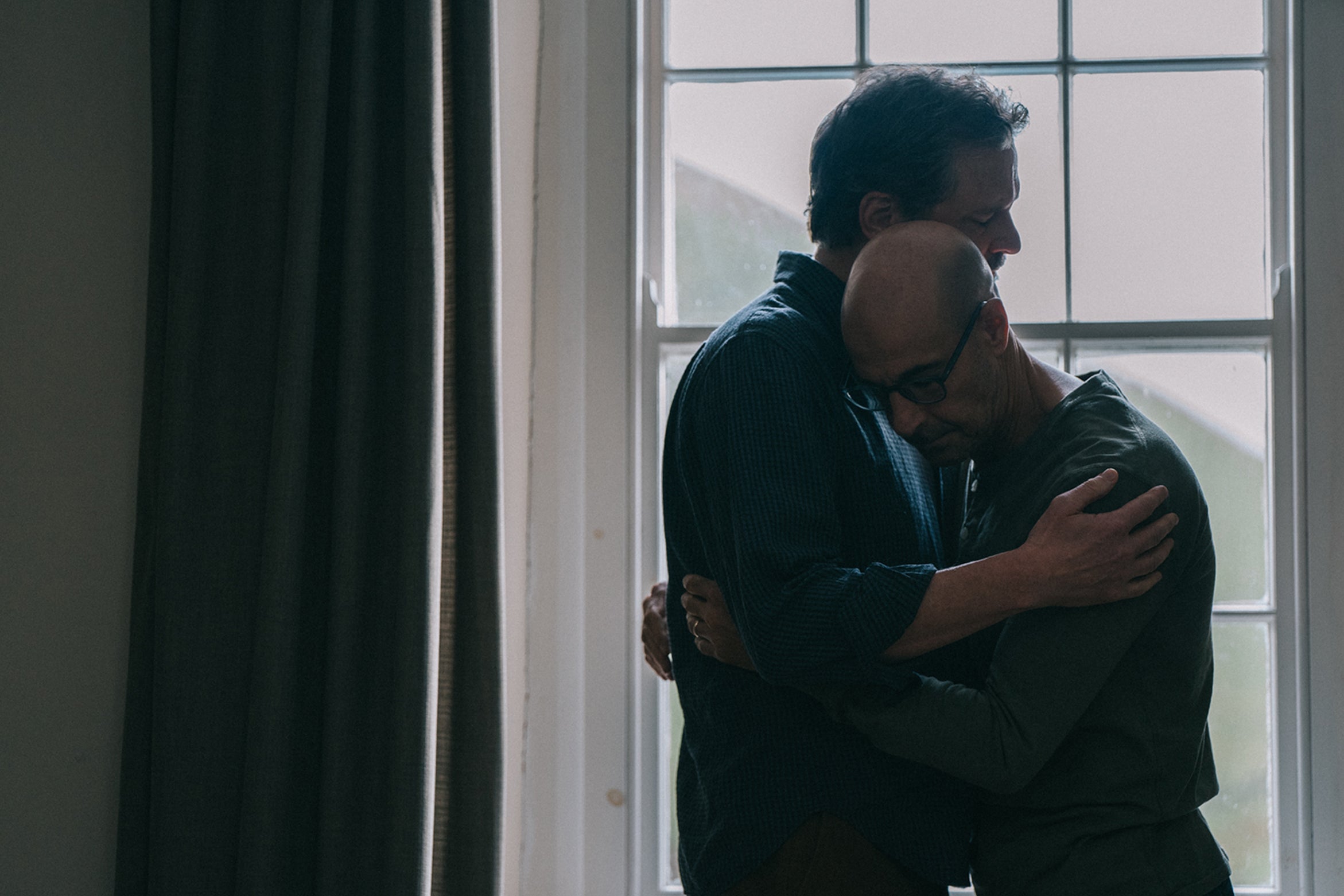
“It doesn’t matter. Could it be a heterosexual couple? Yeah, it could be. Could it be it two women? Yeah, it could be. And could it be two men? Yeah, it could be. It happens.
“And I think it’s a great equaliser. That disease and all disease is an equaliser, and that’s partly what Harry was showing.”
Supernova is released on Friday 25 June.